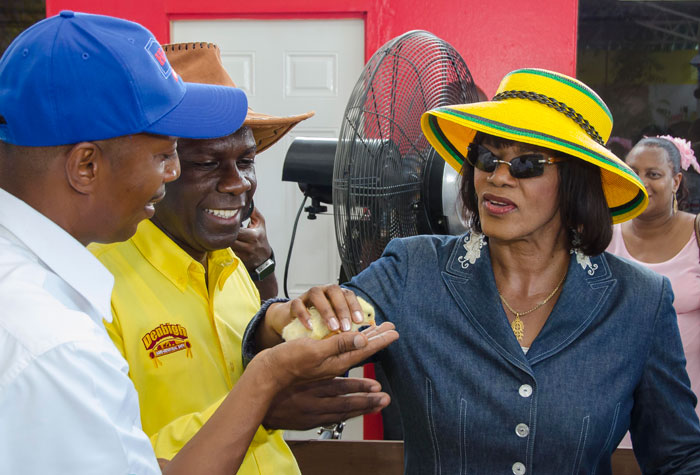Food Imports Down – PM
By: , August 4, 2014The Key Point:
The Facts
- Food imports for the quarter were valued at US$252.2 million, which was US$14.4 million less than the US$266.6 million recorded for the corresponding period of 2013.
- Mrs. Simpson Miller was addressing the 62nd staging of the Denbigh Agricultural, Industrial and Food Show on Sunday, August 3, in May Pen, Clarendon.
The Full Story
Prime Minister, the Most Hon. Portia Simpson Miller, says that food imports have declined for the first quarter of 2014.
Food imports for the quarter were valued at US$252.2 million, which was US$14.4 million less than the US$266.6 million recorded for the corresponding period of 2013.
Mrs. Simpson Miller was addressing the 62nd staging of the Denbigh Agricultural, Industrial and Food Show on Sunday, August 3, in May Pen, Clarendon.
Urging Jamaicans to eat more local produce, she said that the quality of poultry, fish and livestock produced by the country’s farmers continues to be “remarkable”.
She noted that the United Nations Food and Agriculture Organization (FAO), in its continued drive to eradicate hunger and malnutrition in the world, has recognized the importance of a country’s citizens consuming food produced by their own farmers.
“In the context of our International Monetary Fund (IMF) obligations, our high debt and our high energy bill, we must act now with urgency to seize the potential of agriculture to assist and to energize our Jamaican economy,” she stated.
Turning to developments in the sugar cane sector, Mrs. Simpson Miller noted that following the divestment of the industry, the country is now seeing a recovery, with sugar production moving from 128,196 tonnes in 2013 to 153,990 tonnes for this crop.
“In fact, this year, we witnessed the highest level of sugar production ever at Appleton, Worthy Park and Golden Grove,” she informed.
She added that the surge in production has been helped by the cane loan programme where cane farmers can access loans for planting and replanting at five per cent interest rate.
“Through this facility, some 2,240 loans have been approved to date involving 11,920 hectares of cane, including 2,200 hectares in Clarendon,” Mrs. Simpson Miller said.
Jamaica’s sugar cane sector remains a major contributor to the local economy and the social well-being of citizens. In terms of foreign currency earnings, the sugar sector earns an estimated US$90 million on average, each year. As such, sugar is the largest foreign exchange earner in the agricultural sector. It is also the largest employer in the sector, accounting for about 18 per cent of jobs.


